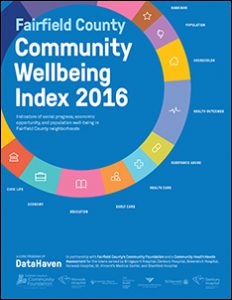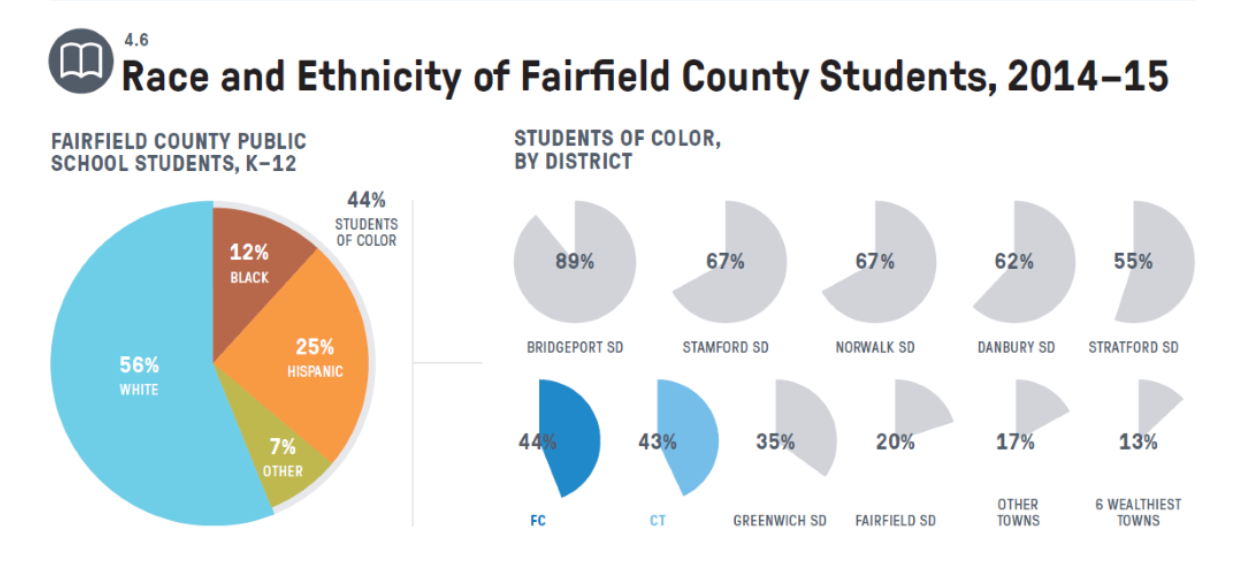Best Small Cities to Start A Business? CT Has Only One - Danbury - Among Top 700 in USA
/Only one Connecticut community is ranked in the top 700 “best small cities to start a business” in a new survey of 1,260 cities across the nation. Danbury, ranked at number 170, was the sole Connecticut city to earn a slot among the nation’s business-friendly small cities. The next Connecticut municipalities on the list were Torrington, ranked at number 749, and East Hartford, at number 775. To determine the best small cities in which to start a business, the financial website WalletHub’s analysts compared across three key dimensions: 1) business environment, 2) access to resources and 3) business costs. Included were cities with a population of between 25,000 and 100,000 residents.
Among Connecticut municipalities, also reaching the top 1,000 nationwide were East Hartford (775), Bristol (836), Westport (861), West Hartford (876), and Shelton (919).
The Danbury city website highlights that “assets and resources include a pro-business climate, a creative, educated and talented workforce, an excellent education system, transportation advantages, a superior quality of life and much more.” The website highlights a Danbury business each week.
"We analyzed 21 Connecticut cities and out of these, Danbury ranked the highest at 170," said WalletHub analyst Jill Gonzalez. "Although it offers a strong business environment, the city has high business costs overall. Most of the cities (14 of them) ranked below the 1,000 rank because these fail to offer a thriving business environment, with little access to the resources needed to start a business as well as restrictive labor costs."
The analysis evaluated each of the three key dimensions using 16 relevant metrics. Each metric was graded on a 100-point scale, with a score of 100 representing the most favorable conditions for launching a business. “ A city with a smaller population can offer a greater chance of success, depending on an entrepreneur’s type of business and personal preferences,” WalletHub points out.
The business environment category (50 points) includes average length of work week, average growth in number of small businesses, number of startups per capita, average revenue per business, average growth of business revenues and industry variety. The access to resources category (25 points) includes financing accessibility, human resource availability, higher education assets, working age population growth and workforce educational attainment. The business costs category includes office space affordability, labor costs, corporate taxes, and cost of living.
Also earning a slot on the “Best Small Cities to Start a Business” list were East Haven (1,004), Norwich (1,014), New London (1,015), New Britain (1,022), West Haven (1,026), Wethersfield (1,028), Newington (1,032), Milford (1,053), Stratford (1,060), Norwalk (1,063), Meriden (1,079), Middletown (1,117), Naugatuck (1,185) and Trumbull (1,239).
Data used to create the ranking were collected from the U.S. Census Bureau, Bureau of Labor Statistics, Federal Deposit Insurance Corporation, AreaVibes, Yelp, Indeed, U.S. News & World Report, Tax Foundation and LoopNet, according to WalletHub.
The top small cities for business in the U.S., according to the analysis, were Holland, MI; Carbondale, IL; Springville, UT; East Chicago, IN; Jefferson City, MO; Wilson, NC; Enid, OK, Rio Rancho, NM; Clearfield, UT and Cheyenne, WY. The top ranked city in New England was East Providence, RI, ranked at number 38.




 The backdrop is offered by more than 700 global companies that have subsidiaries here, employing more than 100,000 people, the Organization for International Investment points out. The state’s convenient access to a variety of transportation options all provides access; there were 4.6 million tons of cargo carried on Connecticut rails in 2015, for example, and 11.4 million tons of freight shipped through Connecticut ports in 2013.
The backdrop is offered by more than 700 global companies that have subsidiaries here, employing more than 100,000 people, the Organization for International Investment points out. The state’s convenient access to a variety of transportation options all provides access; there were 4.6 million tons of cargo carried on Connecticut rails in 2015, for example, and 11.4 million tons of freight shipped through Connecticut ports in 2013. l and freight movement by rail and highway makes Connecticut a prime location for domestic and international trade,” the report points out. Leading exports include: Aerospace/Transportation Equipment, Non-Electrical Machinery, Computers and Electronics, Chemicals, Electrical Equipment, Fabricated Metals Production, and Primary Metal Manufacturing.
l and freight movement by rail and highway makes Connecticut a prime location for domestic and international trade,” the report points out. Leading exports include: Aerospace/Transportation Equipment, Non-Electrical Machinery, Computers and Electronics, Chemicals, Electrical Equipment, Fabricated Metals Production, and Primary Metal Manufacturing. s specific to their industry.
s specific to their industry.


 “The full ecosystem around the defense industry in the state must come together to address these overlapping trends – and many of these collaborative initiatives are already producing significant results – but state government still has a unique role to play in bringing the right ideas to the table,” the report explains.
“The full ecosystem around the defense industry in the state must come together to address these overlapping trends – and many of these collaborative initiatives are already producing significant results – but state government still has a unique role to play in bringing the right ideas to the table,” the report explains.

 Among the key stats:
Among the key stats:
 ate “offers the kind of environment that is particularly conducive to growth for companies that are capitalizing on the latest global economic trends. (The top seven are Massachusetts, Delaware, California, Washington, Maryland, Colorado and Virginia.) The ranking is based on measures in five key areas: Knowledge jobs, Globalization, Economic dynamism, digital economy, and innovation capacity.
ate “offers the kind of environment that is particularly conducive to growth for companies that are capitalizing on the latest global economic trends. (The top seven are Massachusetts, Delaware, California, Washington, Maryland, Colorado and Virginia.) The ranking is based on measures in five key areas: Knowledge jobs, Globalization, Economic dynamism, digital economy, and innovation capacity.
 The Connecticut Technology Council's annual
The Connecticut Technology Council's annual  Data used to create the ranking were collected from U.S. Census Bureau, Bureau of Labor Statistics, National Science Foundation, National Center for Education Statistics, Georgetown University’s Center on Education and the Workforce, United States Patent and Trademark Office, Ewing Marion Kauffman Foundation, Tax Foundation, Consumer Technology Association, Akamai Technologies, U.S. Cluster Mapping Project and National Venture Capital Association.
Data used to create the ranking were collected from U.S. Census Bureau, Bureau of Labor Statistics, National Science Foundation, National Center for Education Statistics, Georgetown University’s Center on Education and the Workforce, United States Patent and Trademark Office, Ewing Marion Kauffman Foundation, Tax Foundation, Consumer Technology Association, Akamai Technologies, U.S. Cluster Mapping Project and National Venture Capital Association. nts have been selected to receive the prestigious awards, including organizations and initiatives from
nts have been selected to receive the prestigious awards, including organizations and initiatives from 




 d childcare slots for fifteen percent of the county’s children ages 0 to 2, and enough subsidized slots to cover only twenty-two percent of these youngest children in low-income households.
d childcare slots for fifteen percent of the county’s children ages 0 to 2, and enough subsidized slots to cover only twenty-two percent of these youngest children in low-income households.


 “The Entrepreneur Innovation Awards seek to give new and growing companies the support they need to thrive,” said Glendowlyn Thames, executive director of CTNext. “Through these events, we have seen a number of incredible companies that are changing their respective industries and creating a positive economic impact in our state. These grants continue to support companies at the earliest stages of growth and to drive them to the next level of development.”
“The Entrepreneur Innovation Awards seek to give new and growing companies the support they need to thrive,” said Glendowlyn Thames, executive director of CTNext. “Through these events, we have seen a number of incredible companies that are changing their respective industries and creating a positive economic impact in our state. These grants continue to support companies at the earliest stages of growth and to drive them to the next level of development.”



























